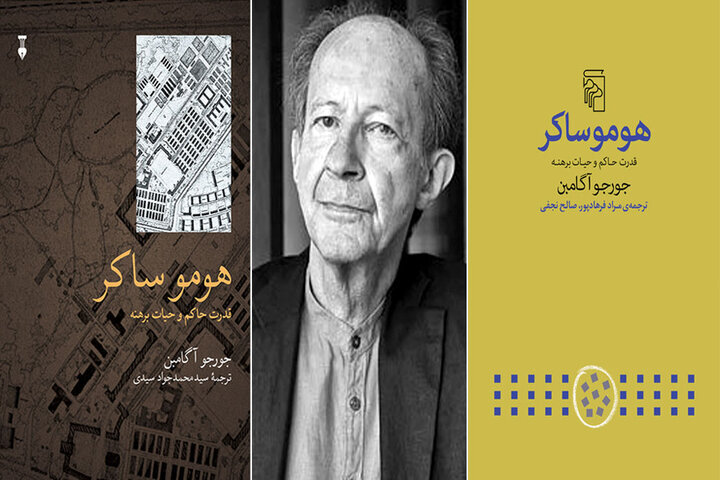Giorgio Agamben’s “Homo Sacer” published by two publishers

TEHRAN-Two Persian translations of the book “Homo Sacer” written by the Italian philosopher Giorgio Agamben has hit in the Iranian book market.
Now Publications has published the book with a translation by Seyed Mohammad Javad Seyedi and Markaz Publications has released the book rendered by Morad Farhadpour and Saleh Najafi into Persian, Mehr reported.
The work of Agamben, one of Italy's most important and original philosophers, has been based on an uncommon erudition in classical traditions of philosophy and rhetoric, the grammarians of late antiquity, Christian theology, and modern philosophy. Recently, Agamben has begun to direct his thinking to the constitution of the social and some concrete, ethico-political conclusions concerning the state of society today, and the place of the individual within it.
In Homo Sacer, Agamben aims to connect the problem of pure possibility, potentiality, and power with the problem of political and social ethics in a context where the latter has lost its previous religious, metaphysical, and cultural grounding. Taking his cue from Foucault's fragmentary analysis of biopolitics, Agamben probes with great breadth, intensity, and acuteness the covert or implicit presence of an idea of biopolitics in the history of traditional political theory. He argues that from the earliest treatises of political theory, notably in Aristotle's notion of man as a political animal, and throughout the history of Western thinking about sovereignty (whether of the king or the state), a notion of sovereignty as power over life is implicit.
The reason it remains merely implicit has to do, according to Agamben, with the way the sacred, or the idea of sacrality, becomes indissociable from the idea of sovereignty. Drawing upon Carl Schmitt's idea of the sovereign's status as the exception to the rules he safeguards, and on anthropological research that reveals the close interlinking of the sacred and the taboo, Agamben defines the sacred person as one who can be killed and yet not sacrificed―a paradox he sees as operative in the status of the modern individual living in a system that exerts control over the collective “naked life” of all individuals.
Agamben, 81, is an Italian philosopher best known for his work investigating the concepts of the state of exception, form-of-life (borrowed from Ludwig Wittgenstein), and homo sacer. The concept of biopolitics (carried forth from the work of Michel Foucault) informs many of his writings.
One of the leading figures in Italian and contemporary continental philosophy, he is the author of “Remnants of Auschwitz: The Witness and the Archive,” “Profanations,” “The Signature of All Things: On Method,” and other books. Through the 1970s, 1980s, and early 1990s he treated a wide range of topics, including aesthetics, literature, language, ontology, nihilism, and radical political thought.
In recent years, his work has had a deep impact on contemporary scholarship in a number of disciplines in the Anglo-American intellectual world. Born in Rome in 1942, Agamben completed studies in Law and Philosophy with a doctoral thesis on the political thought of Simone Weil and participated in Martin Heidegger’s seminars on Hegel and Heraclitus as a postdoctoral scholar.
He rose to international prominence after the publication of “Homo Sacer” in 1995. Translated into English in 1998, the book’s analyses of law, life, and state power appeared uncannily prescient after the attacks on New York City and Washington, DC in September 2001, and the resultant shifts in the geopolitical landscape. Provoking a wave of scholarly interest in the philosopher’s work, the book also marked the beginning of a 20-year research project, which represents Agamben’s most important contribution to political philosophy.
SS/SAB
Leave a Comment